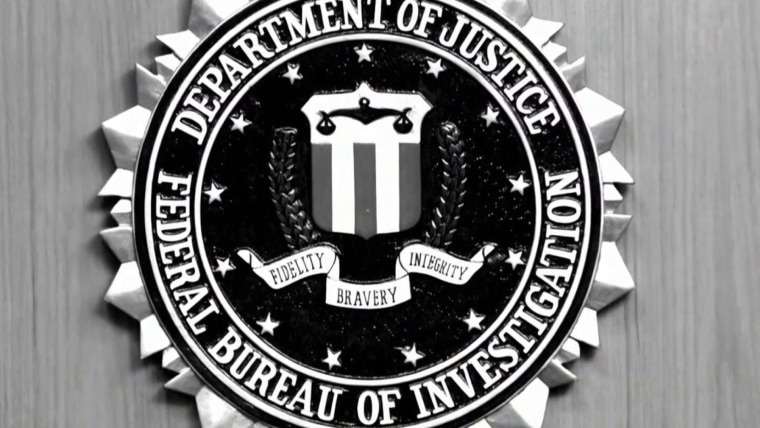The mysterious and sudden brain injuries suffered by a small group of American diplomats and spies overseas were most likely caused by pulsed electromagnetic energy delivered by an external device, a panel of scientific experts working for U.S. intelligence agencies has concluded.
The panel’s findings, while full of caveats, are consistent with what has been a longstanding hypothesis by intelligence officials — that a foreign adversary, most likely Russia, is responsible for at least some of the symptoms suffered by those who have fallen victim to what is commonly known as Havana Syndrome.
The panel’s conclusions also are consistent with a recent CIA interim assessment, which found that most of the 1,000 people who have come forward with possible injuries have symptoms that can be explained by other factors.
The CIA assessment, issued last month, also ruled out what it called a sustained global campaign by a hostile foreign power to injure Americans. But it found two dozen cases in which it could not rule out a hostile cause, and those appear to be the cases the expert panel focused on.
Many of those people are part of the original group of diplomats and spies who first exhibited symptoms in 2016 at the U.S. Embassy in Havana. Intelligence officials declined to say whether any recent cases are part of the cohort of unexplained symptoms, or whether they believe Americans abroad continue to be at risk.
Intelligence officials familiar with the panel’s work told NBC News that it did not consider the question of who might be to blame for the injuries — only what the medical and technical evidence said about possible causes. Russia has denied any link to Havana Syndrome symptoms.
The panel’s scientific conclusions are likely to put a new spotlight on the theory that at least some Americans serving overseas were injured by an external force, a notion that many perceived the CIA assessment as having dispelled. A number of U.S. diplomats and spies who had reported suspected incidents had expressed dismay over the CIA’s report, which was widely perceived publicly as throwing cold water on the belief that Americans had been attacked.
The panel's findings expanded on a 2020 report by the National Academies of Sciences, Engineering, and Medicine, which also found that pulsed electromagnetic energy, also referred to as microwave energy, was the most plausible culprit. That report noted that Russia has a long history of studying and developing the technology.
Intelligence officials told NBC News that the panel included a group of scientists and technical experts from both inside and outside the government who reviewed more than a thousand classified documents and conducted the most exhaustive study to date on the possible causes of Havana Syndrome.
The panel focused on cases in which victims reported hearing a sound from a particular direction or feeling pressure in one ear, and who then suffered vertigo. They also sought to exclude any possible medical or environmental factors.
The panel found that “pulsed electro magnetic energy plausibly explains” the core cases, “although information gaps exist.”
The panel did not identify any device capable of inflicting the injuries.
“It’s more than theory — we were able to obtain some level of evidence,” one officials said. “But there are some significant information gaps.”
Officials said the experts also could not rule out high-powered ultrasound beams as a possible cause, but concluded that microwave energy was more likely to have been easily concealed, low powered and able to penetrate walls.
That conclusion was notable, because some Havana Syndrome victims reported feeling the sensation of being hit by an invisible blast or pressure wave while inside their apartments or homes. Some experts have questioned whether any microwave device that could cause such symptoms from a distance could have a portable power source — one suggested the power source would have to be the size of a small car. But the panel of experts concluded the power requirements would not be high.
Also notable was the panel’s conclusion that they could not attribute the core symptoms of what they call “Anomalous Health Incidents,” or AHIs, to any known medical condition — or to some sort of psychological syndrome.
“Although some signs and symptoms of AHIs are common in known medical conditions, the combination of the four core characteristics is distinctly unusual and unreported elsewhere in the medical literature, and so far have not been associated with a specific neurological abnormality,” the panel concluded in an executive summary.
It added: “No known psychosocial factors explain the core characteristics, and the incidents exhibiting these characteristics do not fit the majority of criteria used to discern mass sociogenic illness.”
The panel did find that some of the symptoms experienced by intelligence operatives and diplomats “could be due to hypervigilance and normal human reactions to stress and ambiguity, particularly among a workforce attuned to its surroundings and trained to think about security.”
However, it added, “the signs and symptoms of AHIs are genuine and compelling.”
Some incidents affected a number of people in the same space, and some victims were found to have suffered “cellular injury to the nervous system.”
Officials said the panel interviewed researchers who worked around commercial microwave devices — and ultrasound devices — who described suffering similar symptoms in accidental exposures.
Havana Syndrome is believed to have emerged in late 2016, when U.S. diplomats and spies serving in Cuba began reporting bizarre sounds and sensations followed by unexplained illnesses and symptoms, including hearing and vision loss, memory and balance problems, headaches and nausea.
Over the years, many hundreds of U.S. officials have come forward reporting suspected incidents in more than a dozen countries, NBC News has reported.
NBC News reported in 2018 that U.S. intelligence officials considered Russia a leading suspect in what some of them assessed to have been deliberate attacks on diplomats and CIA officers overseas. But in the three years since then, the spy agencies have not uncovered enough evidence to pinpoint the cause or the culprit of the health incidents.
Going forward, the panel recommends that intelligence agencies try to identify “biomarkers”— changes in blood or tissue or brain function — that are associated with the health incidents, to better identify them if they happen again.
The panel also recommended that agencies collect more data on the possible incidents and “develop a coordinated communications strategy to inform and educate the U.S. Government workforce,” about the phenomenon.
In a statement, a group of people who believe they are victims of Havana Syndrome said the panel’s findings reinforce “the need for the intelligence community and the broader U.S. government to redouble their efforts to fully understand the causes.”
They also welcomed the Biden administration’s recent announcement of a top White House official to serve as “AHI Interagency Coordinator.”
“This appointment is a welcome expression of concern and support by the president and his team,” the statement said.
In a statement accompanying a public summary of the panel’s work, Avril Haines, the director of national intelligence, and William Burns, the CIA director, said it will “help sharpen the work of the IC and broader U.S. Government as we focus on possible causes. We will stay at it, with continued rigor, for however long it takes.”
Dr. Eric Lander, the Biden administration’s director of the White House Office of Science and Technology Policy, said in a statement that the government had convened panels in the past to examine the potential causes of the syndrome, “but this is the first time a panel has had such wide-ranging access to intelligence reporting and patient data, and has engaged directly with affected individuals. The panelists spent almost nine months undertaking this study ... Their meticulous approach provides a roadmap for important work we still need to undertake.”
Also Wednesday, a separate report by the JASON advisory group, a collection of outside experts that advises the government through the Mitre Corp., issued its own assessment of Havana Syndrome, finding that “it is not possible to conclude at this time that the events….are the result of intentional attacks that cause physical harm. However, it is not possible, either, to rule out mechanisms that do not cause any physical harm but which might constitute harassment and lead to health conditions and functional disorders, for example through unpleasant sounds or pressure sensations.”
The report added, “Given this, and in the interest of protecting embassy personnel and their families, it would be prudent to be vigilant against tactics intended to produce anxiety and trauma, with an intent to either disrupt operations and/or cause long-term harm. The U.S. government could minimize the effects of such tactics, if present, through open communication, education, and appropriate rapid medical response to any conditions that develop.”



